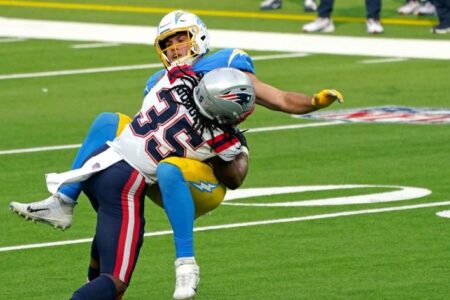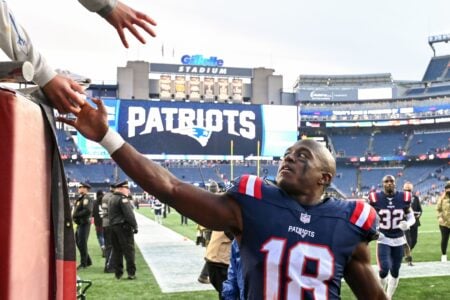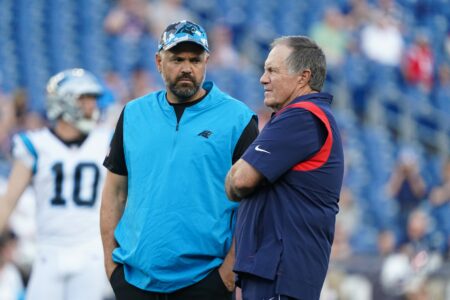- Joined
- Mar 13, 2005
- Messages
- 20,536
- Reaction score
- 1
Re: Anybody else struggling with this Stewart Bradley tidbit?
No player at #28 offered 5-year, multi-million dollar value to the current Patriots' roster, so the team rolled the dice and took an IOU for 2008. The odds are good that it will lead to an earlier pick in 2008, but SF could still surprise and achieve a 12-4 record reducing the potential of that IOU. The dice are still rolling and we won't know if this gamble paid off until after the player gets on the field.
You choose to believe Oakland's 2008 third round pick offers more value than Bradley at #91, BB apparently didn't think so. Whether he gambled and chose to not bundle picks to select him earlier, or was unable to find a trade partner, the two things we "know" are BB wanted Bradley at #91, and that your beloved 2008 pick was "second fiddle" in the mind of our football genius. I have to accept that for the #110 selection that I dislike, you might wish to stop counting non-existent future dividends and do the same.
Yes, they provide the "potential" for long term value, if the players selected meet expectations for their place in the draft. People keep trying to compare draft picks to an investment portfolio, but the value of a draft pick is not dividends, it is the buy order during the draft, that player selected dictates value.Wel, duh. The #28 trade wasn't good value for 2007 either. But I like them both for the long term in value.
No player at #28 offered 5-year, multi-million dollar value to the current Patriots' roster, so the team rolled the dice and took an IOU for 2008. The odds are good that it will lead to an earlier pick in 2008, but SF could still surprise and achieve a 12-4 record reducing the potential of that IOU. The dice are still rolling and we won't know if this gamble paid off until after the player gets on the field.
You choose to believe Oakland's 2008 third round pick offers more value than Bradley at #91, BB apparently didn't think so. Whether he gambled and chose to not bundle picks to select him earlier, or was unable to find a trade partner, the two things we "know" are BB wanted Bradley at #91, and that your beloved 2008 pick was "second fiddle" in the mind of our football genius. I have to accept that for the #110 selection that I dislike, you might wish to stop counting non-existent future dividends and do the same.


















